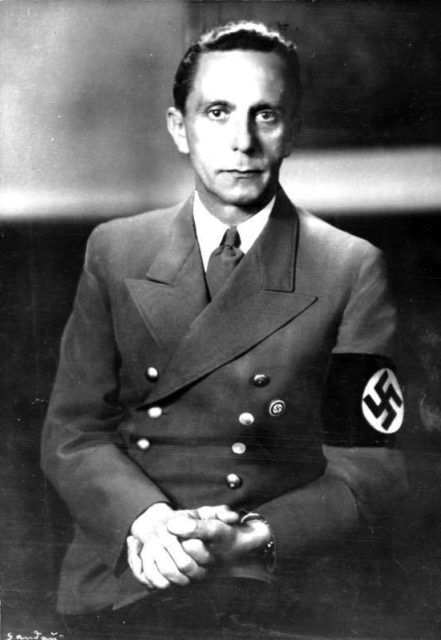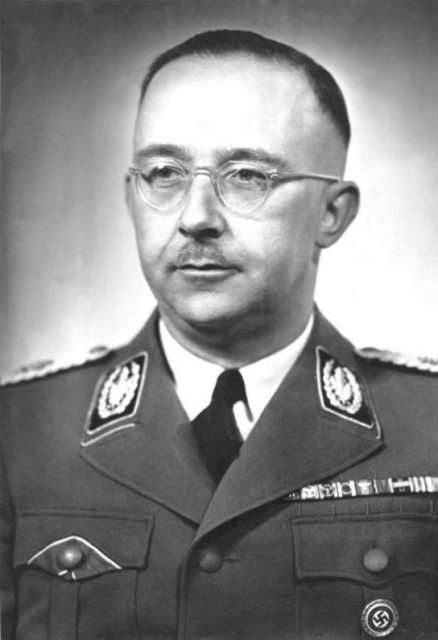Propaganda played a huge part in WWII. Lies, distortions, and half-truths were spread by all sides to motivate the people and deceive the enemy.
In the dying days of the war, two particularly huge lies caught the imaginations of the German people.
Uniting to Fight the Soviets
As the forces of the Western Allies advanced through France and the Low Countries into Germany, the whole world seemed to be against the Germans. Even their former partners, the Italians, had switched sides. In the face of German aggression; capitalist America, conservative Britain, and Communist Russia were unlikely yet firm allies.
Many Germans believed the Allies were about to fall out.
While the Allies advanced into Germany, rumors circulated of tensions between them. The Americans, British, and other western nations had long been opposed to Communism. According to the gossip, they were about to turn on their Soviet comrades. Once the Allies had advanced far enough through Germany, they would join the beaten forces of the Reich. Together, Germany and the Allies would sweep east, wiping out the Soviet menace.
Why Would Anyone Believe It?
After six years of bitter warfare and terrible atrocities, few things were further from the minds of the Allied commanders. So why were Germans, including senior officers, willing to believe the rumor?
Attitudes toward the Allied nations, especially Britain, played a part. German aristocrats and officers saw kindred spirits in the British. Some in the Nazi party had always hoped to ally with Britain rather than fight that nation. Even the Americans had more in common with the Germans than they did with the Russians, both culturally and in the racial ideology that shaped Nazi German thought. According to that logic, they were natural friends.
The Germans themselves had betrayed Russia earlier in the war, breaking their alliance immediately before the surprise invasion of 1941. A precedent had been set.
At the heart of the rumors sat Joseph Goebbels, the Nazi Minister of Public Entertainment and Propaganda. He spread the lie, as he had so many others. It was a desperate attempt to shape reality to his will, to give hope to men facing defeat.

In retrospect, there was an element of truth to it. Russia and the West were rushing to outmaneuver each other in the final days of the war. The Cold War was coming. Less than a year after the war ended, the first Soviet spy was arrested in Britain, Dr. Alan Nunn May.
All those involved recognized the necessity of their alliance. They did not turn upon each other until Germany was utterly defeated.
What Difference Did It Make?
It is hard to tell exactly how much difference the lie made. Most Germans preferred to be captured by the Americans rather than the Russians, which stiffened the fighting in the east as well as encouraging surrenders in the west.
One of the men whose actions were most clearly shaped by the myth was General Lothar Rendulic, commander of Army Group South. He ordered troops not to blow bridges on the route of the American advance. He even wrote to General Patton, asking him to send medical supplies through the lines for the beleaguered German forces, a request which Patton treated with incredulity.
Even at the point of surrender, his belief in a German alliance with the victors shaped Rendulic’s actions. He had his forces on both fronts withdraw to surrender to the Americans. When he met the American commanders, he struggled to believe they would not go on to fight the Soviets. He warned Patton he would regret it if they did not work together against communism.
Goebbels’s lie could only shape events so far. Rendulic and his men were taken as POW’s, not brought into a new alliance.
The Alpine Redoubt
Although he bought into one lie, Rendulic did not believe the other great lie of the late war; the Alpine Redoubt.
The Alpine Redoubt was a plan put forward by Heinrich Himmler earlier in the war. The idea was that, in the event of defeat, German forces would retreat to an area of the Alps. There, they would take up fortified positions and hold out against the enemy. The Reich would live on in an extended mountain fortress.

Despite Himmler’s urging, Hitler never seriously considered the Alpine Redoubt plan. He was unwilling to face the possibility of defeat, never mind a plan for it. However, the idea spread and in the last days of the war many turned their minds hopefully to the redoubt.
Why Would Anyone Believe It?
Himmler’s plan was important in making the rumor plausible. Secrets were central to the way the Nazis worked. It was believable that a mountain fortress was being prepared in secret, just like the hidden weapons labs of Poland or the unreported horrors of the concentration camps.
Hitler had a taste for mountainous fortified bases. From Rastenburg in the east to Soissons in the west, he had a string of bases built throughout his empire, where he could live in comfort while commanding his forces. Why not one more?
What Difference Did It Make?
By the end of the war, most German troops were exhausted and looking to surrender. Some turned toward the Alps in the hope of fighting on. As the Reich collapsed, Hitler even ordered commando leader Otto Skorzeny to gather men and head south, to make a stand in the mountains. When he reached Vienna, Skorzeny found that the Nazi commander had convinced himself that troops were coming to continue the fight, even though no such forces existed. Only the most desperate and determined were heading for the Alps.
The Allies also bought into the myth of the Alpine Redoubt. As they advanced across Germany, forces were diverted to deal with it. As General Omar Bradley said, “the Redoubt was too ominous a threat to be ignored.”
Rumors and a handful of desperate men were not enough to save the Reich. The Alpine Redoubt distracted the Americans, but it could not protect their enemy.
